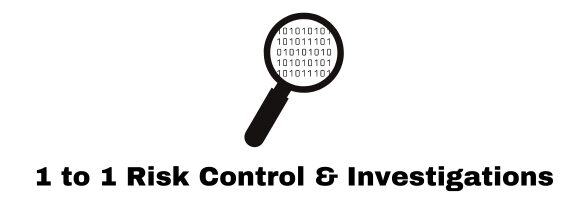405-458-5710
Confidentiality Guaranteed
405-458-5710
Confidentiality Guaranteed
You are Reading:
-
1 to 1 Risk Control & Investigations > Blog > Misinformation > Understanding Echo Chambers and Filter Bubbles

Jul
Understanding Echo Chambers and Filter Bubbles
Defining Echo Chambers: Echo chambers refer to environments where individuals are exposed only to information, opinions, and beliefs that align with their own. In these spaces, dissenting views are minimized or completely absent, leading to the reinforcement of existing beliefs without challenge or scrutiny. Social media platforms, forums, and certain news outlets can all contribute to the formation of echo chambers by promoting like-minded interactions and content.
Defining Filter Bubbles: Filter bubbles are a related phenomenon where algorithms on digital platforms tailor content to individual users based on their past behavior, preferences, and interactions. These algorithms create a personalized experience, but in doing so, they limit exposure to diverse perspectives and information. As a result, users find themselves in a bubble of content that reinforces their existing views, similar to the effect of echo chambers.
The Role of Social Media Platforms: Social media platforms play a significant role in the creation of echo chambers and filter bubbles. Their algorithms prioritize content that is likely to engage users, often showing posts that align with their interests and beliefs. This can lead to a cycle where users are repeatedly exposed to the same type of content, reinforcing their viewpoints and minimizing exposure to differing opinions.
Impact on Public Discourse: Echo chambers and filter bubbles have profound effects on public discourse. They can contribute to polarization by creating isolated groups with little understanding or tolerance for opposing viewpoints. This can hinder meaningful dialogue, reduce empathy, and increase societal divisions. In extreme cases, it can lead to the spread of misinformation and radicalization.
Psychological Comfort: One reason echo chambers and filter bubbles are so pervasive is that they provide psychological comfort. Being surrounded by like-minded individuals and familiar ideas can be reassuring, reducing cognitive dissonance and the stress associated with confronting conflicting information. However, this comfort comes at the cost of intellectual growth and a well-rounded understanding of complex issues.
Algorithmic Influence: Algorithms are designed to maximize user engagement, often prioritizing content that elicits strong emotional reactions. This can lead to a preference for sensational, controversial, or emotionally charged content, further entrenching users in their filter bubbles. Understanding the influence of algorithms is crucial for recognizing the limitations of the content we consume online.
Breaking Out of Echo Chambers: Actively seeking diverse perspectives is essential for breaking out of echo chambers. This involves following a variety of news sources, engaging with people who hold different viewpoints, and being open to information that challenges our beliefs. Curating a diverse online presence can help mitigate the effects of filter bubbles.
Critical Thinking and Media Literacy: Developing critical thinking and media literacy skills is vital in navigating the digital landscape. This includes evaluating the credibility of sources, recognizing bias, and understanding the role of algorithms in shaping our information environment. Media literacy education can empower individuals to make informed decisions about the content they consume.
Encouraging Algorithmic Transparency: Advocating for greater transparency in how algorithms work can help users understand and mitigate their influence. Platforms should provide insights into how content is curated and offer options for users to customize their content preferences. This can enhance user autonomy and reduce the unintended effects of filter bubbles.
Role of Technology Companies: Technology companies have a responsibility to address the negative impacts of echo chambers and filter bubbles. This includes designing algorithms that prioritize diverse content, promoting media literacy, and creating features that encourage users to engage with differing viewpoints. Ethical considerations should guide the development and implementation of these technologies.
Community Engagement: Engaging in community activities, both online and offline, can help bridge the gaps created by echo chambers. Participating in discussions, attending events, and joining groups with diverse memberships can expose individuals to a broader range of ideas and perspectives, fostering understanding and cooperation.
Personal Responsibility: Individuals also bear responsibility for seeking out diverse perspectives and challenging their own beliefs. This requires a conscious effort to step outside comfort zones, question assumptions, and engage with unfamiliar viewpoints. Personal growth and societal cohesion depend on our willingness to embrace diversity in thought.
Echo chambers and filter bubbles are significant challenges in the digital age, impacting public discourse, personal growth, and societal cohesion. By understanding their mechanisms, actively seeking diverse perspectives, and advocating for algorithmic transparency, we can mitigate their effects and foster a more inclusive and informed information environment. Personal responsibility and community engagement play crucial roles in this endeavor, contributing to a healthier and more resilient society.
- AI
- Bug Sweeps
- Car Security
- Cyber Crime
- Cyber-Stalking
- Digital Forensics
- Fraud
- Geo-Political
- GPS Tracking
- Hidden Cameras
- Identity Theft
- Investigations
- Misinformation
- Mobile Device Forensics
- Mobile Device Security
- Operational Security
- Privacy
- Psychology
- Situational Awareness
- Social Media Investigations
- Stalking
- Surveillance
- Uncategorized
